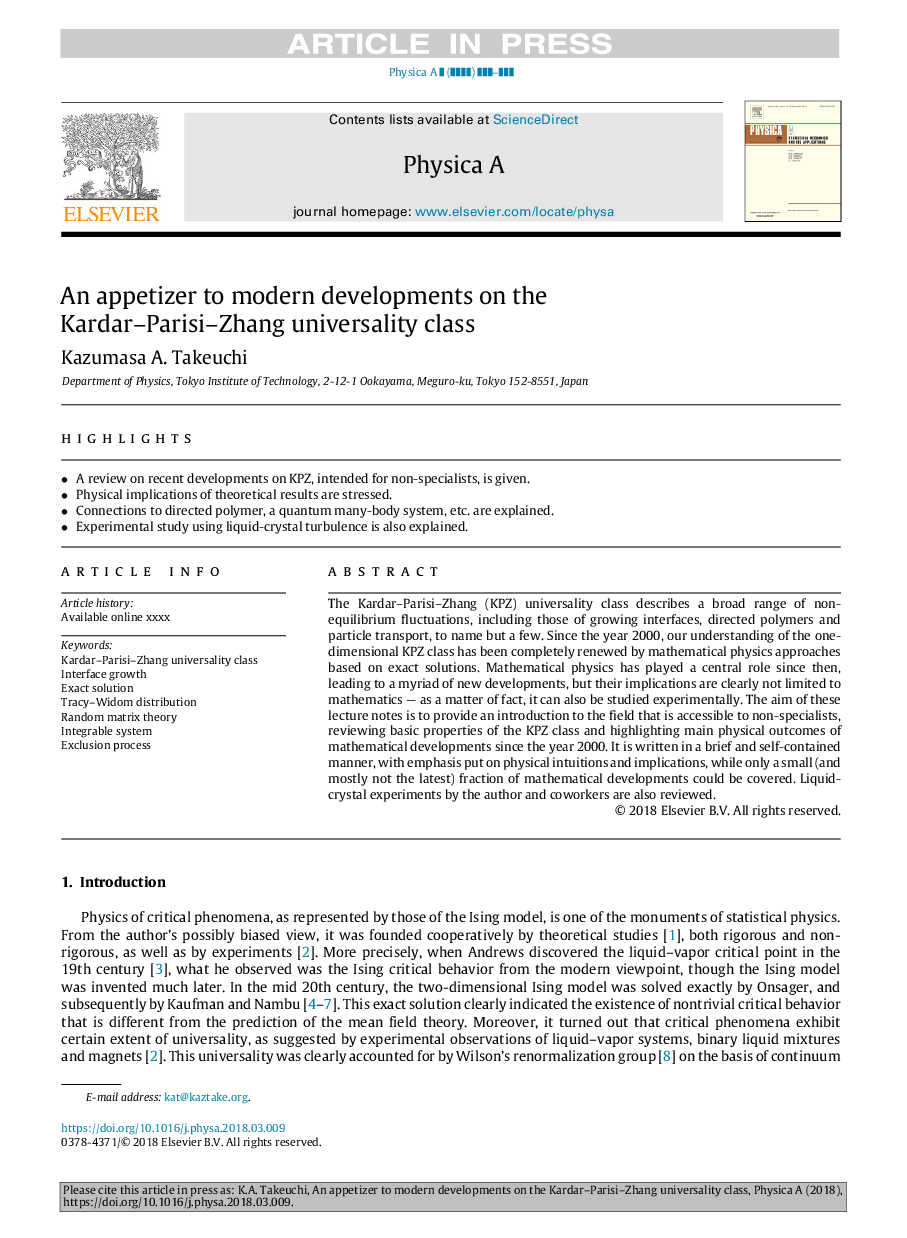| Article ID | Journal | Published Year | Pages | File Type |
|---|---|---|---|---|
| 7375082 | Physica A: Statistical Mechanics and its Applications | 2018 | 29 Pages |
Abstract
The Kardar-Parisi-Zhang (KPZ) universality class describes a broad range of non-equilibrium fluctuations, including those of growing interfaces, directed polymers and particle transport, to name but a few. Since the year 2000, our understanding of the one-dimensional KPZ class has been completely renewed by mathematical physics approaches based on exact solutions. Mathematical physics has played a central role since then, leading to a myriad of new developments, but their implications are clearly not limited to mathematics - as a matter of fact, it can also be studied experimentally. The aim of these lecture notes is to provide an introduction to the field that is accessible to non-specialists, reviewing basic properties of the KPZ class and highlighting main physical outcomes of mathematical developments since the year 2000. It is written in a brief and self-contained manner, with emphasis put on physical intuitions and implications, while only a small (and mostly not the latest) fraction of mathematical developments could be covered. Liquid-crystal experiments by the author and coworkers are also reviewed.
Related Topics
Physical Sciences and Engineering
Mathematics
Mathematical Physics
Authors
Kazumasa A. Takeuchi,
